Articles
Read more than 6000 articles in 35 languages from over 90 cultural journals and associates.
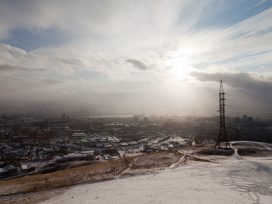
Siberia survives as a single name for a territory covering two-thirds of Russia. Yet it comprises well over a dozen regions, republics and territories. Look at how the borders of Siberia were defined, writes Mikhail Rozhanskiy, and you grasp the imperial nature of Russia’s social space.
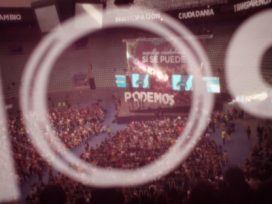
If Spain did not have an agonistic democracy before, it does now. Podemos was only founded in 2014. But following its rise, a war over meanings, resources and power has broken out, writes Manuel Arias Maldonado. So what exactly are the generals thinking?
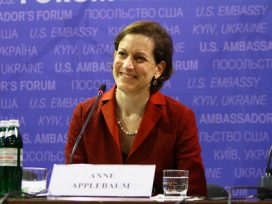
Russia: A sick man with a gun
Anne Applebaum in conversation with Lukasz Pawlowski
For many European countries even to start thinking about Russia as a threat, 20 years after the Cold War ended, requires a paradigm shift. So says Anne Applebaum, as she sees political leaders who made their careers in conditions of European peace flounder in the current military crisis.
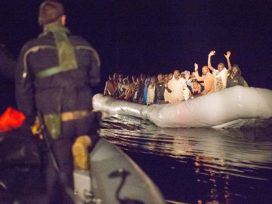
Humanitarian rhetoric, inhumane treatment
The European Union's approach to migrants
In an article first published prior to the 19 April capsizing of a wooden fishing boat and consequent drowning of around 800 migrants in the Mediterranean, Judith Sunderland and Bill Frelick warn about the EU’s preference for border enforcement over the creation of safe, legal channels into the EU.

When a group of claimants in the UK took on Google for invasion of privacy, they had little idea that the case would become a landmark in the fight to tame the Internet giant’s intrusion into our lives on the Web, writes Judith Vidal-Hall.
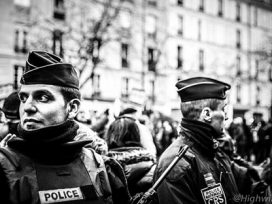
Parading under the banner of a common front for freedom, governments worldwide have embarked on a security clampdown whose political fallout could be more damaging than the threat it seeks to banish, writes Simon Davies.
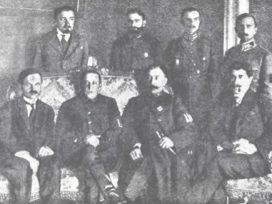
As Walter Benjamin once remarked, “every rise of Fascism bears witness to a failed revolution”. A statement that events in Ukraine after the Orange revolution go some way toward confirming, writes Mykola Riabchuk; not that a sudden reversal of recent trends remains out of the question.

Russian responses to the Charlie Hebdo attack in Paris reveal the contradictions of political and social trends in today’s Russia, writes Nikolay Mitrokhin; with the most dramatic response being the unprecedented political killing of leading opposition politician Boris Nemtsov.
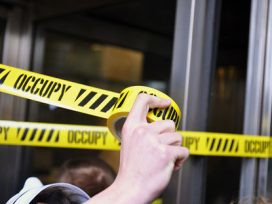
Occupy and the 99%
Understanding Occupy politics
A highly individualist identity politics is clearly one of the mainstays of the culture of the new capitalism. But, asks Jacob Mukherjee, could this also be precisely what constitutes a barrier to the formation of a collective political subject in the first place?
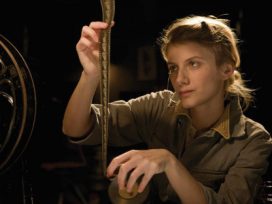
The Holocaust as fiction
From Andrzej Wajda's "Korczak" to Quentin Tarantino's "Inglourious Basterds"
“Whereof one cannot speak, thereof one must be silent.” However, what if remaining silent is unacceptable? Then Wittgenstein’s famous dictum no longer helps, writes Stefan Auer. Then one narrates stories, even cinematic ones.
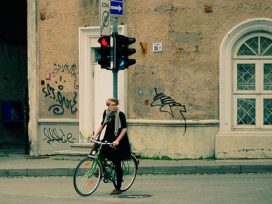
From a distance
Postmodern identity in an increasingly postmodern reality
Why is it that, 25 years after independence, the attachment that Lithuanian citizens once felt to their country has weakened considerably? Because postmodernist self-consciousness prefers regional identity to state identity? Bronislovas Kuzmickas reports.
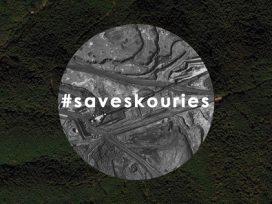
Extractivism above all?
Global economics, local resistance
Intensifying the exploitation of underground resources has been suggested as a solution for Europe’s crisis-ridden regions. But who really owns these resources? And where do the proceeds from their exploitation go? Evie Papada reviews the situation in the villages of Chalkidiki, Greece.
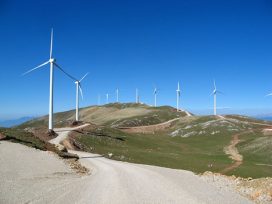
Breaking out of the debt dilemma
How Greece can strengthen Europe
Political and economic relations need to be established that provide Greek society with a future in Europe, argues Claus Leggewie. But if this is to happen, even more important than dealing with the past is future-oriented investment in areas such as renewable energy.
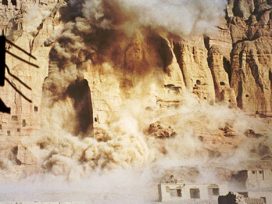
Fanatical counter-histories
A conversation with Alberto Toscano
The philosopher Alberto Toscano visited Bergen on 29 November 2014 to participate in the seminar “Fanaticism, Extremism, Radicalism”, organized by the research group Radical Philosophy and Literature at the University of Bergen. Toscano also took part in an event at the Literature House in Bergen, where he was interviewed by Gisle Selnes, professor in Comparative Literature at UiB. This interview is an edited version of their conversation and was first printed as part of a dossier on fanaticism in the Norwegian magazine Vagant’s first issue of 2015.

An array of photography and film, visual arts, theatre, mixed-media storytelling and online journalism is dispelling notions of refugees as voiceless victims. Almir Koldzic and Áine O’Brien report on new channels providing an antidote to mainstream media coverage of life as a refugee.